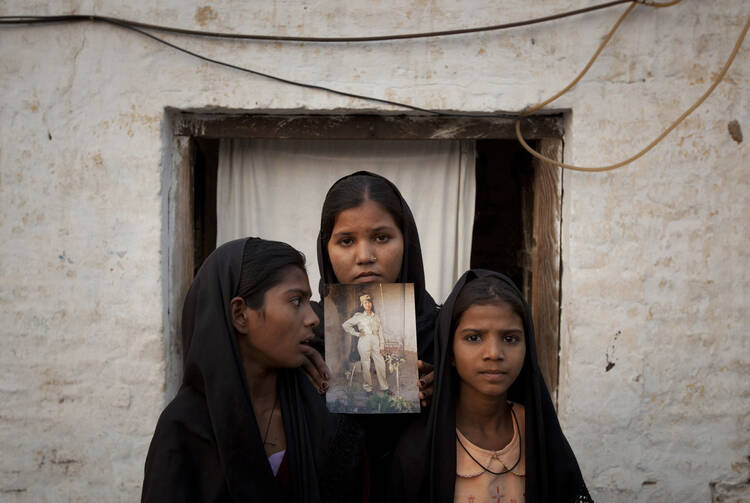It is hard to believe, but it appears that a five year court odyssey for a Pakistani Christian mother of five will continue. Yesterday an appeals court in Pakistan upheld the death sentence against Asia Bibi for "blasphemy" against Islam. Bibi, 45, has been imprisoned since 2009 while appealing her death sentence for allegedly denigrating the prophet Mohammed and Christian evangelizing. Accused by Muslim co-workers after a dispute over a communal water source, according to her defense team, she was convicted under Pakistan's infamous blasphemy laws. The blasphemy statutes have been consistently condemned by international judicial authorities.
The Lahore High Court ruled that Bibi's execution by hanging could be carried out. According to one media report, witnesses said judges Anwar Ul Haq and Shahbaz Ali Rizvi upheld the death sentence "amid pressure from dozens Islamists, including clergy, who were watching proceedings."
Bibi's case brought global attention to Pakistan's blasphemy laws, which are frequently used to target Christians or troublesome politicians or community leaders. They have even been known to be fraudulently deployed by neighbors seeking to settle scores with Christians or seize their property. Two politicians, the governor of Pakistan's Punjab province, Salman Taseer, and Christian federal minister Shahbaz Bhatti, were assassinated in 2011 for criticizing the blasphemy legislation under which Bibi was sentenced.
The Centre for Legal Aid Assistance and Settlement (CLAAS), which defended Bibi, said it intends to submit a final appeal to the Supreme Court within the allotted 30 days, noting this process "could last a number of years."
CLAAS issued a statement following the court decision, describing it as unexpected and complaining that the court was under "obvious" pressure from "extremists." According to CLAAS, "religious Islamists and fanatic lawyers who do not want to pursue the cases as normal legal process...become emotional in these matters and do not want to listen [to] anyone, as they want to just punish with death." Increasingly such outside pressure is prejudicing court outcomes on blasphemy charges, the organization complains.
The CLAAS statement ended: "We are deeply saddened by the court decision today which was not passed on merit and it would not be wrong if we say that it was biased decision. CLAAS team is very much disheartens and we are worried about the other cases of blasphemy which are under proceeding in the different courts of Punjab."








